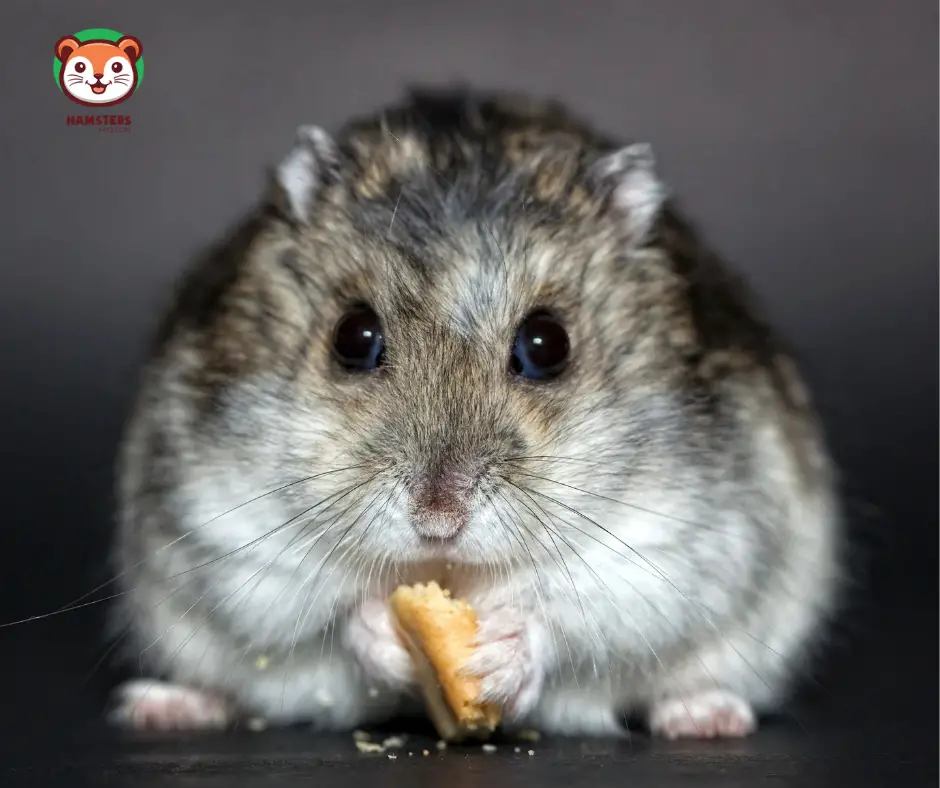Knowing how much food to put in your hamster’s cage can be overwhelming, especially for people who don’t have a lot of experience with hamsters.
Guides and charts often provide conflicting information! If you’re searching for how much food to give a dwarf hamster, you are likely realizing that it is more than you expected.
You will likely realize that it is more than you expected If you’re searching for how much food to give a dwarf hamster.
Adult dwarf hamsters need about a teaspoon of food per day. You’ll want to feed your dwarf hamster a variety of healthy foods and treats. Hamsters love to eat, so it’s important to keep the food bowl full and varied.
If you’re not sure how much food you should give your hamster, here are some guidelines:
- Adult dwarf hamsters need about 1 teaspoon (5 grams) of food per day (about 1/8th cup).
- Juvenile and baby dwarf hamsters need about half as much as adults — about half a teaspoon (2 grams) per day (about 1/16th cup).
How Often Do I Feed My Hamster?
Younger hamsters need to be fed more frequently than older ones because they are growing quickly. Older hamsters don’t need to eat as often because their bodies aren’t working as hard to keep them alive, so they don’t burn through energy as quickly as young ones do.
The recommended amount of food for a Syrian hamster is 1/4 cup per day. This is a good rule of thumb for any type of hamster, but it’s always a good idea to ask your vet or breeder about how often and how much to feed your hamster.
If your hamster is pregnant or nursing, it may need more food than usual. The same goes if you have an older hamster that isn’t as active anymore.
In general, though, the amount of food your hamster needs will depend on its age and size. Hamsters are nocturnal animals that eat at night, so it can be difficult to keep track of how much they’re eating in one sitting.
If you have more than one hamster in your cage and they’re eating different kinds of food, they might also be eating at different times — which makes things even harder.
Do I Fill My Hamster’s Food Bowl Every Time It’s Empty?
The short answer is no, you shouldn’t fill up the bowl every time it’s empty. Once a day is perfectly nornal.
Hamsters are small animals and they need to eat small amounts of food at a time. Hamsters should be fed fresh foods as much as possible, but if your hamster is used to eating commercial food, then you can feed them that too.
Hamsters don’t require a lot of food and overfeeding them can cause health issues and even death for your pet.
If you only have one or two hamsters and you want to keep them healthy, then I would suggest not filling their bowls all the way up with food every time they are empty.
It will make them gain weight quickly and become overweight or obese which can cause a number of health problems for your pet including diabetes mellitus (sugar diabetes), heart disease, and even cancer.
Boredom leads to overeating when there is nothing else to do in a cage that doesn’t provide enough stimulation for these little guys so they turn to eat as an easy form of entertainment.
My Hamster Won’t Eat His Whole Bowl
Here are some possible reasons why your hamster may not be eating his whole bowl:
1. He’s full
As you can probably guess, this is the most common reason why your hamster might not eat his entire bowl of food. If he’s full, he won’t want to eat more food and will stop eating before he feels uncomfortable.
This is important because over-eating can cause health problems for your hamster, especially if he eats too much high-calorie food.
If your hamster has already eaten his fill of water during the day, then you’ll want to make sure that you’re giving him a small meal at night so that he doesn’t get hungry during the night and start nibbling on things that aren’t safe for him.
2. You’re not feeding enough variety
This is common with younger hamsters, who need to be fed a diet rich in nutrition every day. If your hamster is young, try switching up the food types you give them (for example, instead of feeding them just seeds, also feed them some fresh vegetables or fruit).
3. Your hamster has health problems
If your hamster isn’t eating for two days straight or has lost interest in its food altogether, this could mean that it has an illness or injury that needs to be treated by a vet.
If your hamster is only eating a few pellets or seeds and not drinking water, there’s a good chance she’s sick. The first thing you should do is get her to the vet. If your vet can’t see her right away, call around to find another one who will, it’s worth it.
4. Digestive issues
Hamsters have very short digestive tracts, which means they have fewer enzymes to digest their food than other rodents do.
This means that if your hamster eats something that doesn’t agree with him, his digestive system will have more trouble breaking down that food into nutrients that can be absorbed into his bloodstream.
If your hamster seems constipated (has hard stools), this could indicate that his digestive tract is having trouble processing food properly, which could also cause him to lose interest in eating altogether.
5. Dental problems
It’s possible that your hamster isn’t eating because it has a dental problem. If you notice your hamster is having trouble chewing its food, or if it seems to be in pain when it eats, take it to the vet immediately. Dental problems can be serious and even fatal if left untreated.
Conclusion
It is better to feed your dwarf hamster small portions of food several times a day than one large portion once a day. This will help keep the food from spoiling and also help to reduce obesity, diabetes, and other diseases in dwarf hamsters.

